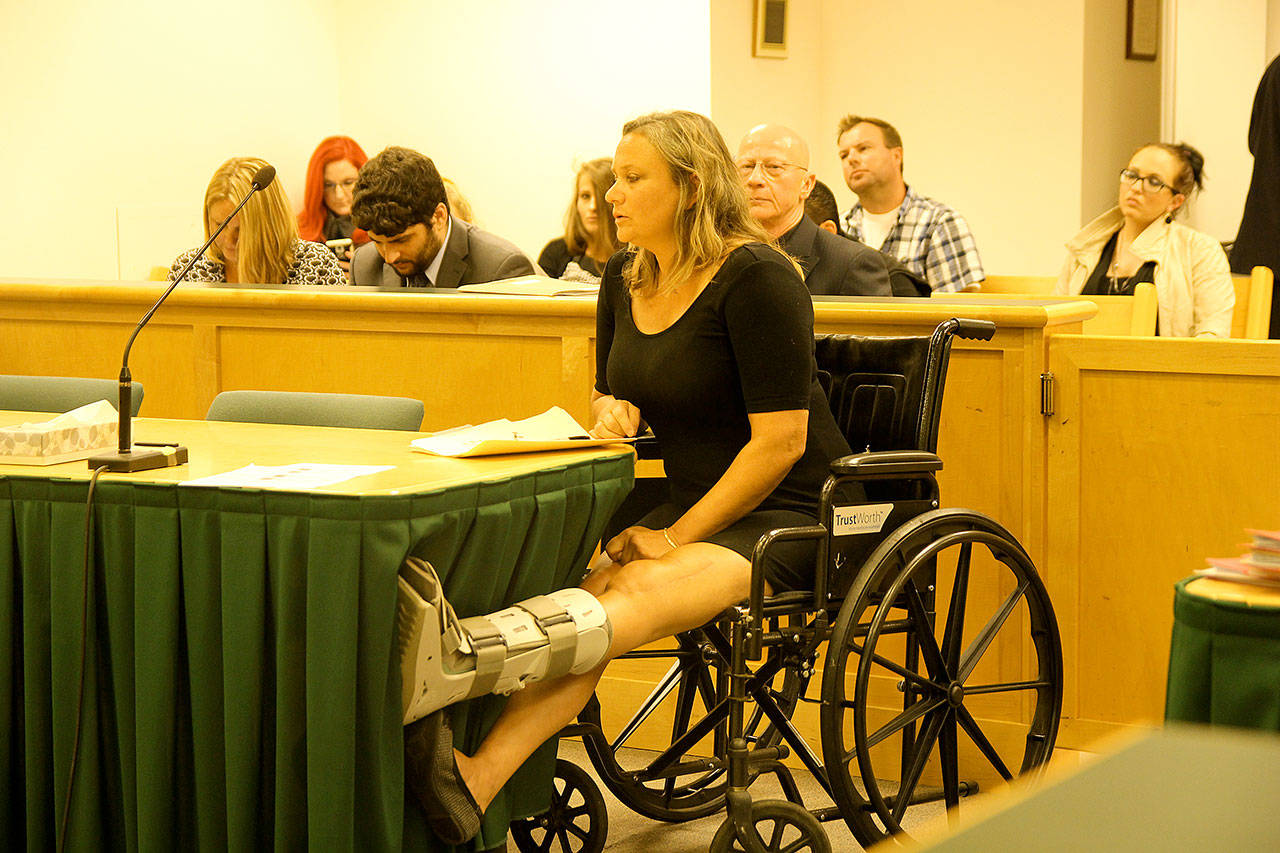The Washington State Court of Appeals affirmed the conviction of a woman who caused a 2015 head-on crash that killed South Whidbey resident Timothy Keil.
Michelle D. Nichols, also a South Whidbey resident, will be ordered to serve a sentence of 10 years and six months in prison unless the state Supreme Court intervenes.
The case has taken an unusual path through the courts. Island County Chief Criminal Prosecutor Eric Ohme and defense attorney David Carman agreed on a plea bargain under which the basic facts of the case were agreed upon and a judge weighed the evidence against Nichols in a bench trial, but that Nichols wouldn’t serve any sentence until after an appeal.
Ohme said he agreed to the deal to avoid the potential of having two lengthy jury trials in a case that pivoted on the admissibility of blood evidence. The blood was drawn without a warrant while Nichols was unconscious and being prepped for surgery.
The appeals court found that facts of the case provided the probable cause.
On the night of Feb. 14, 2015, Nichols was driving on State Highway 525 when her car ricocheted off a guardrail and went head-on into an oncoming car driven by Keil, who was killed. Nichols was seriously injured; her femur was fractured and the bone was sticking four inches out of her skin, according to court documents. She was airlifted to Harborview Medical Center in Seattle.
The appeals court wrote that investigators had probable cause because Nichols drove head-on into the other car without braking, a firefighter smelled alcohol on her, she told a nurse she had been drinking and her prior DUI.
The court also found that “exigent circumstances” justified the warrantless blood draw. The investigators had trouble communicating because of a lack of cell service in the area, which delayed any application for a search warrant.
A trooper was sent to Harborview to see if he could smell alcohol on her. He arrived to find she was unconscious, was intubated and had been given blood transfusions. She was about to go into surgery, so investigators decided to draw her blood before the chance was lost.
Tests later showed that three hours and 51 minutes after the collision, her blood-alcohol level was 0.11 percent, more than the 0.08 percent state limit.
During a bench trial, Island County Superior Court Judge Vickie Churchill found Nichols guilty of vehicular homicide, under the DUI prong, and sentenced her to the maximum.
Nichols appealed.
On Monday, the appeals court filed its decision, finding that exigent circumstances justified the drawing of Nichols’ blood without a search warrant and that troopers had probable cause to draw her blood on the belief that she committed vehicular homicide.
“Given the totality of circumstances,” the opinion states, “we hold the trial court did not err in concluding that the exigencies of the case justified a warrantless blood draw because the State showed by clear and convincing evidence that it was impractical to obtain a warrant in a timely manner and highly probable that evidence would be destroyed if troopers further delayed by obtaining a search warrant.”
The defense argued that the blood results were inadmissible because the prosecution couldn’t show it was her blood that was tested due to transfusions she received prior to the blood draw. The appeals court ruled it was her blood, under the law, simply because it came from her body.
The appeals court decision was filed as an unpublished opinion, but Ohme said other prosecutors have asked him to file a motion to have it published, which means it becomes legal doctrine that can be cited in other cases. He said it appears that the case was the first in which the issue of a blood draw after a transfusion was challenged.
It could still be months before the case would come back to Island County Superior Court for sentence imposition. Nichols can ask the appeals court to reconsider or she could petition the state Supreme Court for review.



